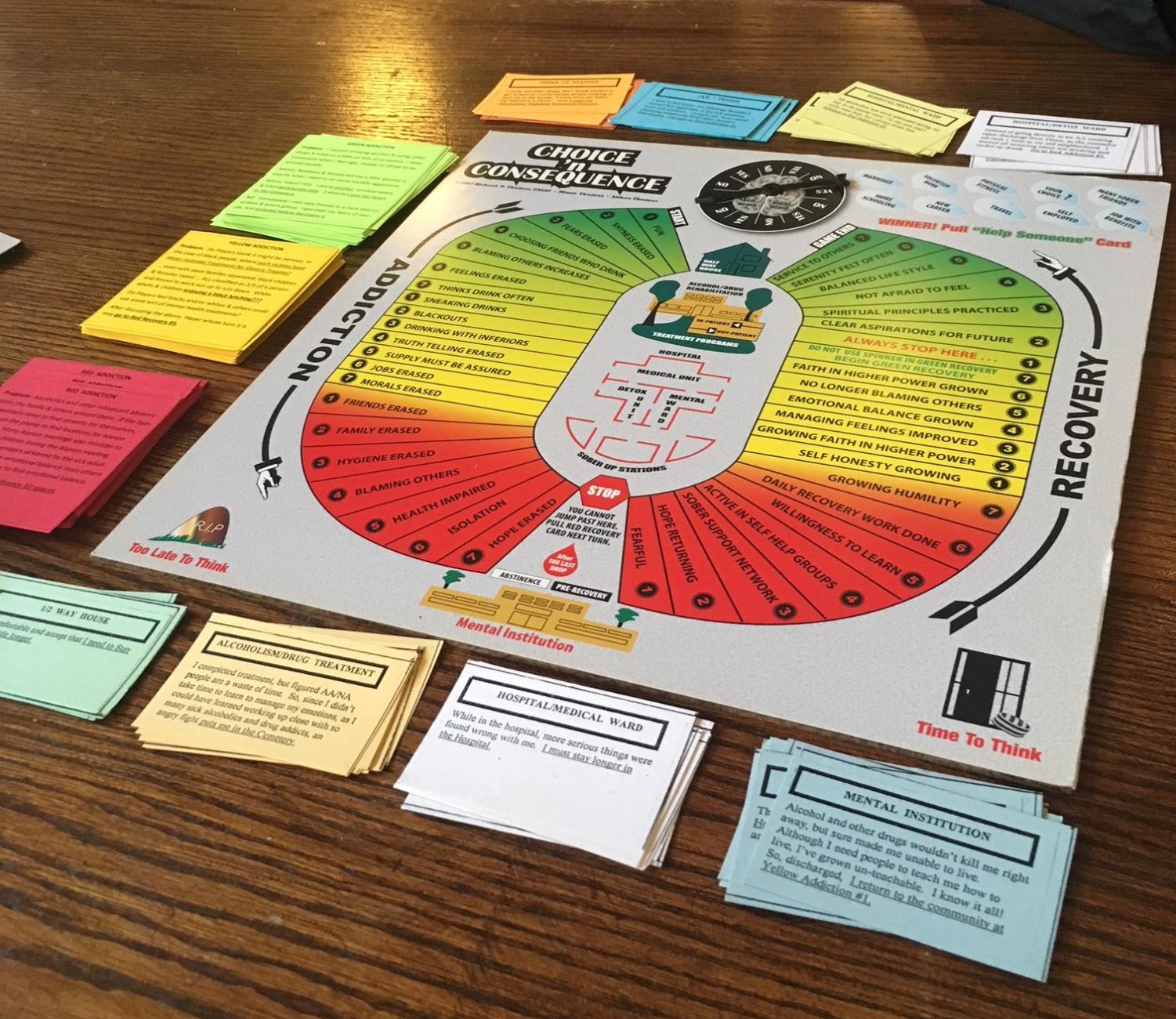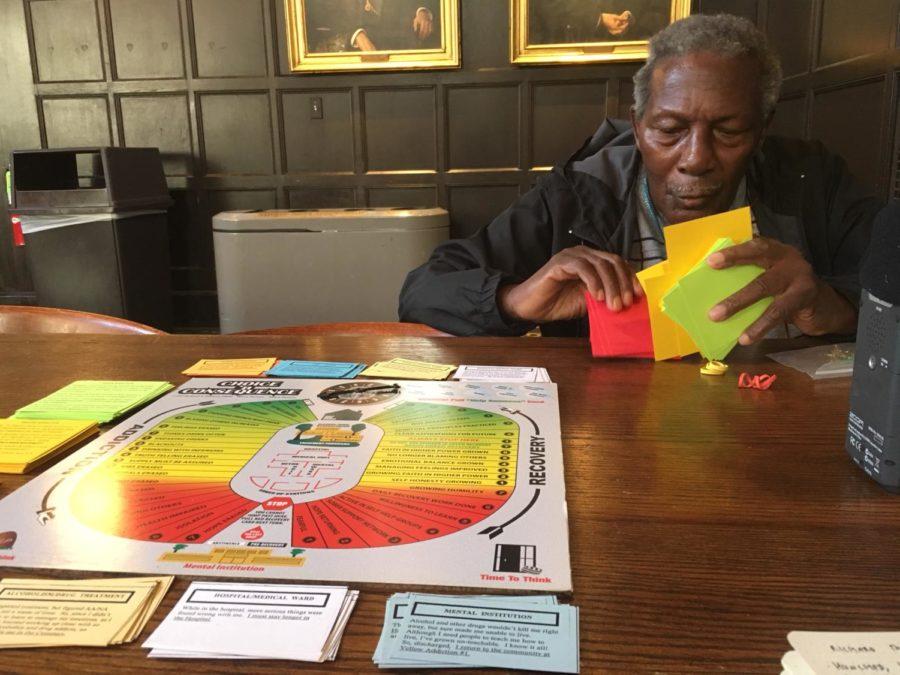The board is complex: The path of play is a circle, colored in a gradient that goes from green to yellow to red, then back to green. Around it are clip-art destinations: a hospital, a prison, and a cemetery. At the top of the board, a cartoon brain serves as the background to a plastic spinner, which lands between “YES” and “NO.”
This is the game Choice and Consequence. In it, players, work their way toward recovery in a battle with addiction.
The Maroon first heard of Choice and Consequence when Richard Thomas, its creator, asked to place an ad for the game in the paper.
“I would like to put an Ad or a Public Service announcement in your paper,” he wrote. “The latter might not cost me, a senior age 88, on modest Social Security. Also you might look kindly on me as I twice worked for the University of Chicago.”
We were intrigued. Rather than sell him an advertisement, I decided to meet Thomas and play the game for myself.

Thomas wore a colorful knit sweater and a straw hat the day we met in Hutchinson Commons. He brought with him a messenger bag and a large artist’s portfolio, which he dragged along the floor as we walked to a table.
We unpacked the game haltingly, each step punctuated by an anecdote. Thomas speaks like a grandfather: His carefully chosen words rumble from his chest. Over the course of our conversation, we talked about his love of science, his brushes with the law, and his short-lived career in puppet theater. Thomas has lived hundreds of lives in his 88 years, and he flitted from one story to the next with ease.
He told me that, as a young man, he worked at the University as a lab assistant for Willard Libby, a professor at the Institute for Nuclear Studies. Although he did not stay in the sciences for long, Thomas’s passion for them shone through during our conversation. As we played, he told me about recent scientific discoveries and lamented that they weren’t taught in schools today.
However, throughout his life—his time in jail for carjacking, and at the University, and selling poems door-to-door—Thomas has struggled with alcoholism. After being hospitalized in New York, Thomas enrolled in Alcoholics Anonymous.
“I felt so inadequate, even though I got a college degree. I didn’t know how to talk to people,” he said. He was a stranger, an interloper in the preexisting community. “Men and women are hugging each other and no one’s hugging me.”
Thomas’s sponsor devised a trick. At the sponsor’s request, a woman in the group asked Thomas to walk her to the meeting. Thomas, thinking he had been asked on a date, happily complied.
“I said to myself, ‘Oh man, I’ve been chosen!’ I figured, sooner or later, that someone would notice me,” he said.
After this first meeting, the group made him the chairperson. Suddenly, Thomas was part of a community, responsible for unlocking the building, cleaning the meeting room, setting out snacks, and organizing guests. Before long, he began to share his own experiences.
“You get to telling [your story], and that begins to free you up. You get stronger and better at it. After a while, you’ll be able to help others.”
While Thomas said the game doesn’t directly mirror his experiences with AA, he believes it can serve a similar purpose: getting people to speak openly about their addictions.
During each turn, players draw cards prompting them with hypothetical situations, like “you want to skip an AA meeting.” The cards also give advice: in this case, “go to the meeting anyway and talk about your feelings.” The spinner tells players whether they follow the advice. Depending on the action taken, players are sent further into their addiction or to one of the facilities around the board, or they can advance toward recovery.
As players read these situations about misusing alcohol and drugs, they might feel more willing to open up about their own experiences, says Thomas.
“It pushes people to talk honestly about stuff that they would otherwise keep secret,” he explained. “People don’t go around talking about the crowd they were with last night and the goofy stuff they did. If you played it with people, you would soon hear them say, ‘This really happened to me,’ and they would go on to describe that episode.”
Thomas hopes to start selling the game. He told me that each game board comes with hundreds of cards which he prints at home in sets of six. Thomas is looking for volunteers to help assemble and market the game copies.
“[Volunteers] could have a piece of this. A hefty piece. Because so far, I only have myself.”
Those interested in contacting Thomas about Choice and Consequence can reach him at thomas0919@sbcglobal.net
This article is also available as a podcast:









